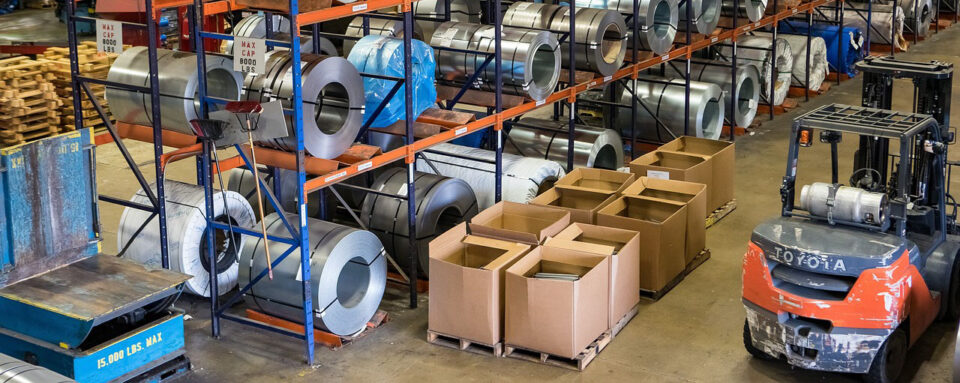Warehouses are essential spaces for storing goods, housing machinery, and facilitating operations. However, maintaining optimal conditions inside a warehouse can be challenging due to its large floor space and diverse requirements. Proper ventilation is critical to ensuring a safe, comfortable, and energy-efficient environment for workers, equipment, and inventory. This guide explores the ventilation requirements for warehouses, focusing on air conditioning systems, temperature control, and energy efficiency to meet the specific needs of your space.
Is It Necessary to Have Air Conditioning in a Warehouse?
Many warehouse owners wonder whether air conditioning is a necessary investment. The answer depends on factors like the nature of the goods stored, the working conditions for staff, and the overall operational goals. For example, temperature-sensitive items such as food, pharmaceuticals, or electronics require a reliable cooling system to maintain product quality. Similarly, warehouses with high employee activity benefit from improved air quality and consistent temperature control. In some cases, mechanical ventilation alone may suffice for a warehouse with minimal temperature-sensitive goods or operations. However, incorporating an air conditioning system provides better regulation of warehouse air, ensuring that both inventory and personnel are protected from extreme conditions. Without proper ventilation, issues such as poor air quality, excess humidity, and inconsistent temperatures can negatively impact operations.
See our blog: How to climate control a warehouse
Benefits of Air Conditioning in a Warehouse
The benefits of incorporating air conditioning units or an HVAC system into a warehouse extend far beyond basic temperature regulation. Key advantages include:
- Temperature Control: Air conditioning ensures that indoor temperatures remain consistent regardless of outdoor conditions, creating a stable environment for goods and workers.
- Improved Air Quality: By circulating fresh air, a ventilation system removes dust, allergens, and contaminants from the warehouse air, enhancing the overall working environment.
- Energy Efficiency: Modern air conditioning units are designed with energy efficiency in mind, reducing operational costs while maintaining optimal performance.
- Increased Productivity: A comfortable temperature leads to better employee performance and reduced fatigue, especially in spaces where heating and cooling are essential.
- Protecting Inventory: Whether you store temperature-sensitive goods or machinery, an air conditioning system prevents damage caused by excessive heat or humidity.
- Compliance with Standards: Warehouses often need to meet ventilation requirements to comply with workplace safety and building regulations.
By installing high-quality HVAC systems or industrial exhaust fans as part of a warehouse ventilation strategy, businesses can optimise their operations and create a safer, more productive workspace.
Key Ventilation Requirements for Warehouses
To achieve effective warehouse ventilation, it’s important to consider the specific requirements of your facility. These include:
- Air Circulation: Proper airflow ensures that fresh air reaches all parts of the warehouse, preventing the build-up of stagnant air. Ventilation systems, including mechanical ventilation, exhaust fans and industrial ceiling fans are essential for maintaining this balance.
- Temperature Regulation: Whether through heating and cooling systems or air conditioners, temperature control is a critical aspect of warehouse management. Maintaining a consistent climate prevents issues like overheating and excessive cold.
- Humidity Management: Excess humidity can damage stored goods and create a breeding ground for mould and bacteria. A high-quality air conditioning system can help regulate moisture levels.
- Energy Efficiency: With large floor spaces, warehouses require energy-efficient solutions to manage operational costs. Modern HVAC systems and air conditioning units are designed to minimise energy consumption while maximising output.
- Customised Solutions: Warehouse ventilation needs vary based on factors like the type of goods stored, the number of workers, and the regional climate. A tailored approach ensures your facility meets its unique ventilation requirements.

Choosing the Right Ventilation System
There is a wide range of options when it comes to ventilation systems for warehouses. Mechanical ventilation, HVAC systems, and standalone air conditioning units all serve distinct purposes. For example, mechanical ventilation works well for warehouses requiring basic air circulation, while HVAC systems provide comprehensive temperature control and air quality management. When selecting a system, consider the following factors:
- Size of the Floor Space: Larger warehouses may require a combination of cooling systems, exhaust fans, and air conditioners to ensure even distribution of airflow.
- Nature of Operations: Warehouses storing perishable goods will benefit from advanced temperature control systems, while facilities focused on heavy machinery might prioritise robust ventilation to remove heat and exhaust.
- Energy Efficiency: Look for systems that offer energy-saving features to keep costs manageable over the long term.
Trust Fanquip With Your Ventilation Needs
Proper ventilation is essential for maintaining a safe, efficient, and productive warehouse environment. Whether it’s installing an air conditioning system for temperature-sensitive goods or implementing a ventilation system to improve air quality, addressing these requirements ensures your facility operates at its best. With benefits like energy efficiency, temperature control, and improved air quality, investing in high-quality ventilation systems is an investment in your warehouse’s future. If you’re ready to optimise your space, explore Fanquip’s tailored ventilation solutions for warehouse applications. From mechanical ventilation to comprehensive HVAC systems, our expertise ensures your warehouse meets all ventilation requirements with ease.
Get your free copy of our Industry Brochure on Common Ventilation Challenges & Solutions in Warehouses & Storage.
